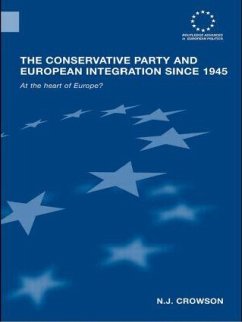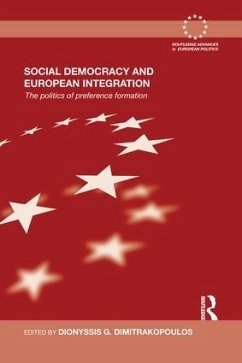
European Integration and the Nationalities Question
Versandkostenfrei!
Versandfertig in 1-2 Wochen
19,99 €
inkl. MwSt.
Weitere Ausgaben:

PAYBACK Punkte
10 °P sammeln!
A highly topical examination of the effect of European integration on relations between states and minority nations. This new collection brings together the leading specialists in the field, and covers a wide range of cases, from Northern Ireland in the West, to Estonia and Latvia in the East, and Cyprus in the South-East. The contributors assess how European integration has affected the preparedness of states to accommodate minorities across a range of fundamental criteria, including: enhanced rights protection; autonomy; the provision of a voice for minorities in the European and internation...
A highly topical examination of the effect of European integration on relations between states and minority nations. This new collection brings together the leading specialists in the field, and covers a wide range of cases, from Northern Ireland in the West, to Estonia and Latvia in the East, and Cyprus in the South-East. The contributors assess how European integration has affected the preparedness of states to accommodate minorities across a range of fundamental criteria, including: enhanced rights protection; autonomy; the provision of a voice for minorities in the European and international arena; and the promotion of cross-border cooperation among communities dissected by state frontiers. The comprehensive chapters stress the importance of the nationality question, and the fact that, contrary to the hopes and beliefs of many on the left and right, it is not going to go away. Beginning with an introductory essay that summarizes the impact of European integration on the nationalities question, this accessible book will be of strong interest to scholars and researchers of politics, nationalism, ethnic conflict and European studies.














